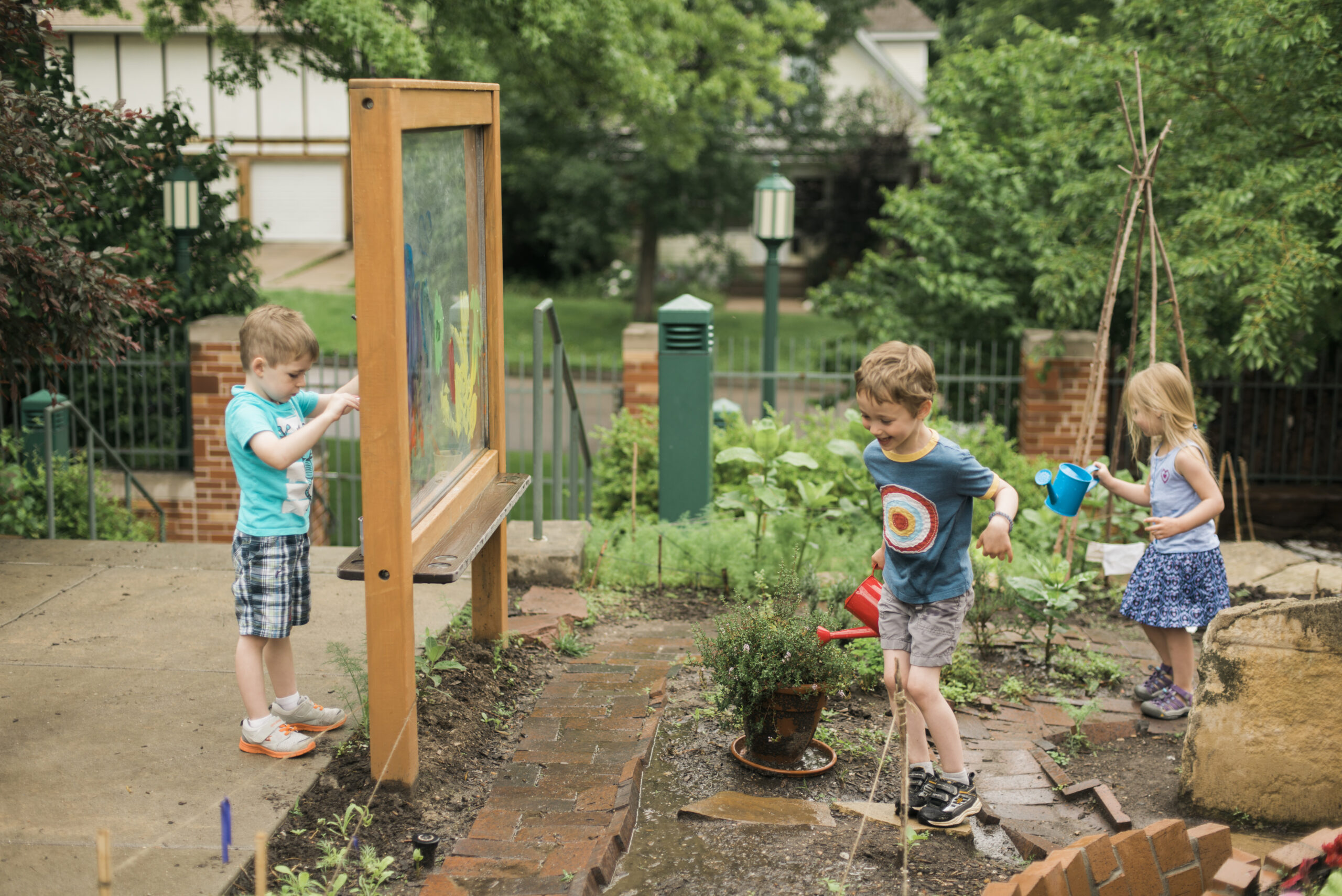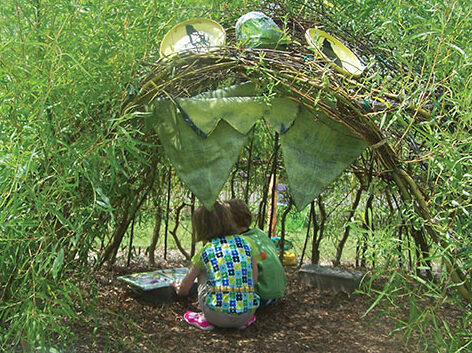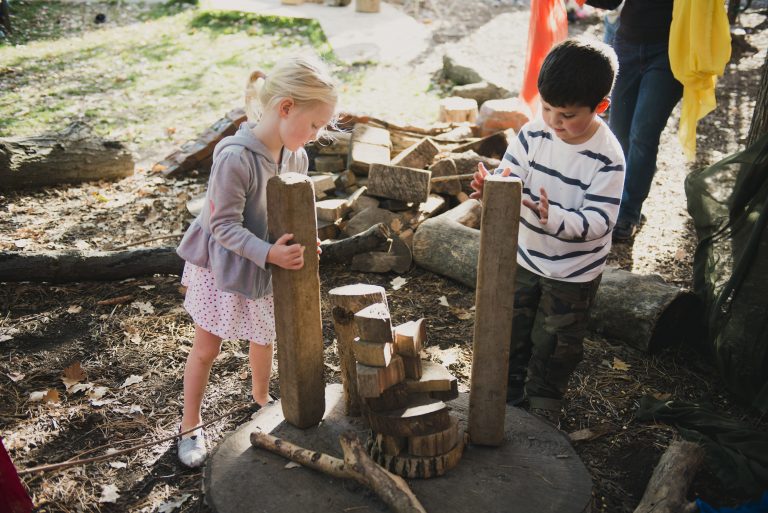The National Natural Outdoor Classroom Study was conceived through a partnership between Nature Explore, The Outdoor Classroom Project, and the Environmental Design Lab in the Department of Planning and Landscape Architecture at the University of Wisconsin-Madison.
The goal of the project was to conduct a survey with educators and administrators who work with children in natural outdoor classrooms to examine educators’ observations and perceptions related to supporting children’s social, emotional, cognitive and physical development; educator perceptions of their own experiences in the outdoor classroom; and administrators’ perceived value of natural outdoor classrooms for their programs. As a follow-up to pilot research conducted in 2014, the largerscale initiative studied the efficacy of nature-based outdoor classrooms in delivering whole-child learning, specifically in supporting children’s initiative, creativity, skill-development, healthy eating, social-emotional development and environmental stewardship.
The University of Wisconsin Survey Center contacted 274 sites that were certified or recognized by Nature Explore, The Outdoor Classroom Project, or both. Educators and administrators at the sites were invited to take a web-based survey. The survey asked educators questions related to their support of children’s development, interests, needs, and attention restoration. Questions about educators’ perceptions of their own work included self-efficacy, attention restoration, and the importance of design features, as well as questions about experience, training and time spent in the outdoor classroom. Administrators were asked about staff appreciation, interest in the program, and official recognition.
Key findings
Most educators felt that in the natural outdoor classroom:
- they supported children’s learning and development in all domains with the most frequent being creativity and imagination and social emotional development;
- they could observe children’s interests/needs more than on a traditional playground;
- children with identified special needs were more engaged in the outdoor classroom than indoors;
- they saw positive or appropriate developmental behaviors in children;
- they noticed restorative aspects to children’s behavior when returning indoors;
- they themselves felt refreshed and patient and therefore better able to respond to children’s need;
- they felt increased effectiveness in their work as they were able to adjust activities to the appropriate level for children and more able to calm upset children.
Administrators at programs with natural outdoor classrooms (including early childhood education settings, elementary schools, and public settings such as libraries and nature centers) felt that having a certified or otherwise officially recognized natural outdoor classroom added value to their educational program, by:
- increasing interest in the center and its programs;
- offering official recognition that an informal outdoor classroom could not; and
- increasing staff satisfaction.




